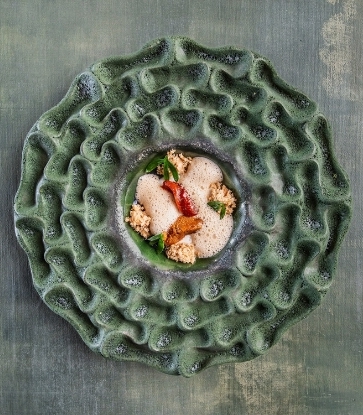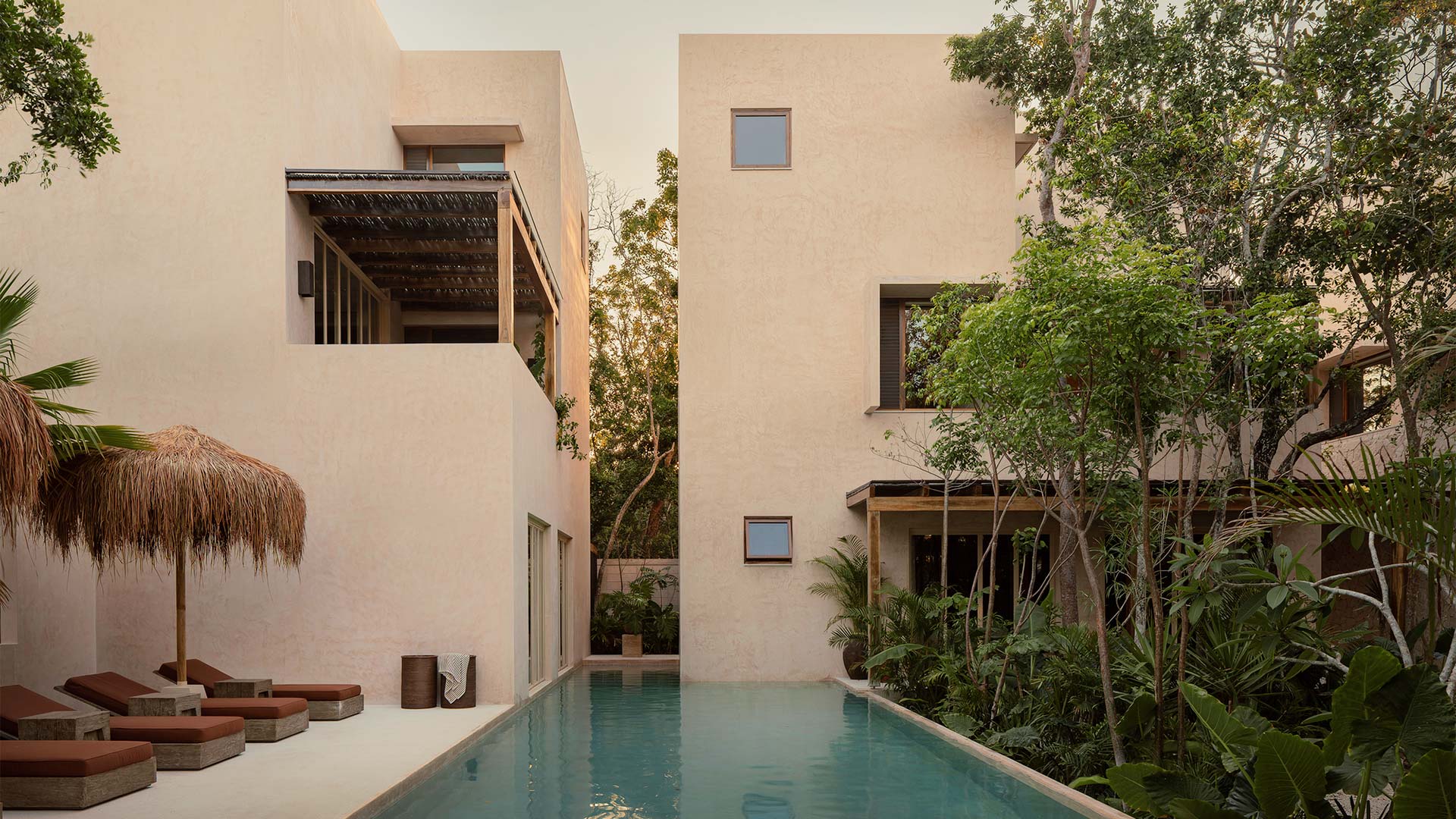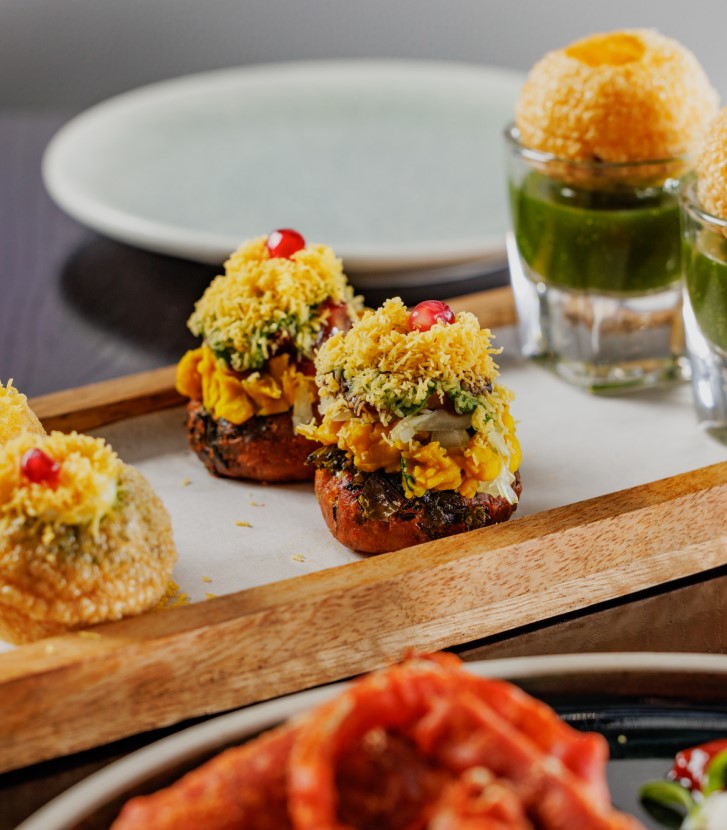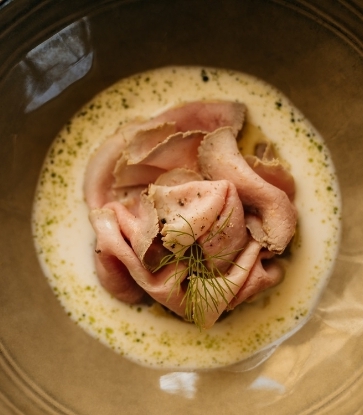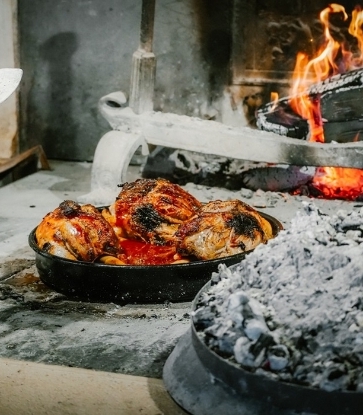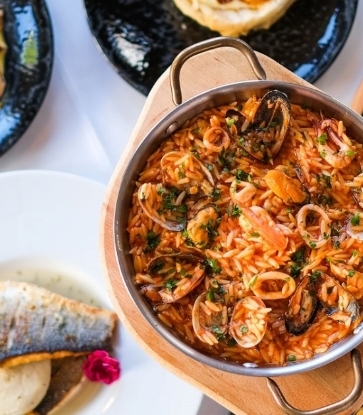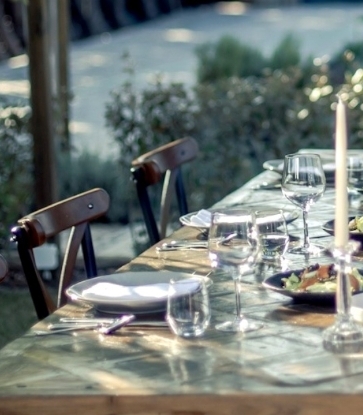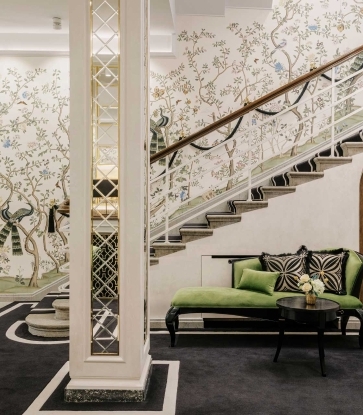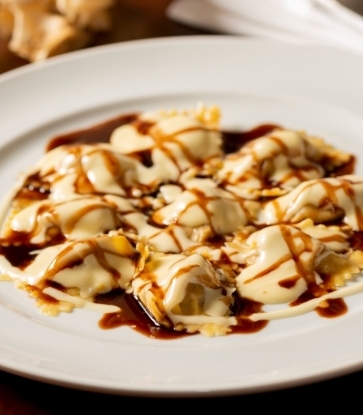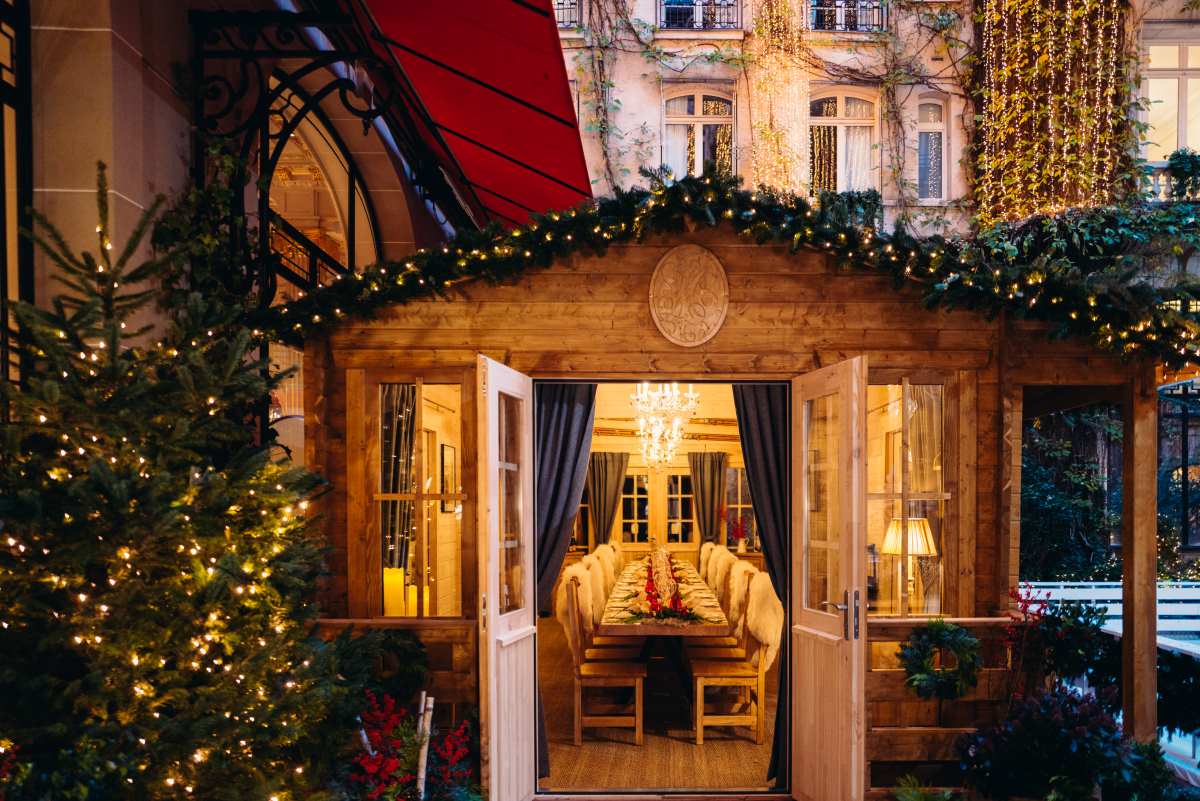There’s a kind of grace that Tetsuya Wakuda carries with him as he moves through the world. It’s not the kind of flamboyant charisma you might expect from a chef of his stature, but something subtler — shaped by decades in the kitchen, guided by instinct, and grounded in the simple act of feeding people well.
In Singapore, where his MICHELIN-Starred restaurant, Waku Ghin, has long been a cornerstone of fine dining, Wakuda feels most at ease in places that don’t beg for attention: early morning visits to the wet market, grounding nature walks, and a reliably good kaya toast from a neighborhood coffee shop chain.
At home, the Japanese chef loves to hunker down to homemade Italian fare, citing the relationships that have refined his craft. “It’s funny, right? People assume I’d want a bowl of ramen, but what I crave after a long day is Italian food,” he says. “Blame it on one of my closest friends in Sydney. He’s from Naples. When I was living there, I’d head to his restaurant after service — I probably went 5,000 times. I just watched him cook, and that’s how I learned. Now, I make pasta with scampi, or gnocchi with buckwheat. Sometimes I’ll mix in a Japanese element — it’s just whatever feels right in the moment,” he says with a smile.

That same sense of fluidity carries over into his professional kitchen. Even at Waku Ghin, European techniques are often paired with Japanese sensibilities: a splash of soy in a Western-style sauce, a quiet balance replacing overt flash. Ask any of his protégés — the countless others who’ve passed through his kitchens — and they’ll tell you: Wakuda teaches through intuition. “We don’t follow strict recipes,” Wakuda says. “Fish changes. Seasons change. You have to taste and adjust. That’s what I teach.” While it may confuse younger chefs at first, they often appreciate it in the long run.” It’s a philosophy rooted in trust — in ingredients, in instinct, and in people.
That’s simply the man Wakuda is — amiable, mild-mannered, and free-spirited. And today, he opens up about his favorite places in Singapore, the food he always returns to, and why — after all these years — this island feels more like home than anywhere else.

For a morning activity that reveals the rhythm of Singaporean life:
“I’m always up early, and I like to walk through the markets even if I’m not buying anything — just to see what’s there. My favorite is Tiong Bahru Market. It’s a local gem. You go early, around 7 a.m., before the good stuff is gone. It reminds me of my early days in Sydney, walking through the fish market. It’s not just about the produce available, but the inspiration I take from just seeing what’s there and experiencing the environment and energy. Even in Japan or Australia, the busiest and most touristy places are usually the markets — that’s simply where life happens.”

For a breakfast that never fails:
“Definitely Toast Box. They’ve been consistent for years. Whichever branch you go to, you know what you’re getting. I always order the chicken curry, a kopi siew dai, and kaya toast with cold butter — that part is essential. The toast should be warm, not hot. If it’s too hot, the butter melts. Not nice. I’ve even thought about getting a salamander at home just to make the toast properly.”

For a local dish that never gets old:
“Chicken Rice, for sure. Everyone likes it. It’s comforting. Even the rice is full of flavor. It’s the first thing my team from Sydney wants when they land in Singapore. I go to Tian Tian Hainanese Chicken Rice at Maxwell, and I also enjoy Boon Tong Kee (Balestier Road). If I’m there, I always order the homemade beancurd — it’s really good.”

For a taste of comfort:
“There’s an outlet of First Street Teochew Fish Soup tucked inside the Toast Box Coffee House in Tiong Bahru. I go there at least once a week. The fish is incredibly fresh, and the soup is very comforting. There's also Ah Chiang’s Porridge — they’ve been around for decades, still cooking their congee over charcoal. It’s smooth, a little smoky, and very nostalgic. Sometimes I go just for that — simple but good food.”

For unwinding beyond the restaurant's walls:
“Eat, drink, shop — that’s the national sport in Singapore. I walk around Marina Bay Sands since that’s where Waku Ghin and Wakuda are, or I take my boat out from ONE°15 Marina at Sentosa Cove. Some days, I just go walking along the old railway tracks in Bukit Timah. It’s really peaceful.”

For a full day of eating, Tetsuya Wakuda-style:
“In the morning, I head to Toast Box for my usual kaya toast and kopi siew dai. Lunch might be tempura at Tenshin, sushi at Sushi Sato, or a grilled sea bass at Milos. For dinner, I like the Cantonese soy sauce noodles at Jade Palace — it’s not on the menu, so you need to ask for it in advance, but it’s perfect. And for supper, I’ll stop by the bar at CUT for sliders and cocktails. They’re very good.”
“I believe it’s the people that make a place,” shares Wakuda with a glint in his eye. Though he has homes in both Australia and Singapore, it’s clear which one holds his heart these days. “I’ve been here nearly 30 years. My closest friends here aren’t Japanese — they’re Singaporean,” he says. “Doctors, artists, chefs — we all met through food. What has made Singapore home for me is really the group of friends I have made throughout the years.”
“Being ‘home’ to me simply means being myself,” he adds. “When I’m not working, you’ll find me in shorts and a t-shirt, walking through the market, having my daily kopi, and seeing friends. Nothing fancy at all.” It’s a kind of unfiltered freedom, one that’s hard-won and quietly cherished.

Wakuda may speak with the soft cadence of someone who’s never needed to raise his voice but make no mistake — there’s a fierce velocity beneath the surface. “When I want something, I want it yesterday,” he says with a laugh escaping him — not as a boast, but as a matter of fact.
It’s this unrelenting curiosity, this urgency paired with grace, that has shaped his life — not just in restaurants or recipes, but in the way he lives.
Wakuda’s Singapore isn’t loud. It doesn’t try to impress. It’s stitched together from mornings at the market, coffee shop breakfasts, fish soup on slow days, and sliders at midnight. They’re the rhythms of a life deeply and deliberately lived — a life that moves between chef and friend, guest and host, with the same gentle precision he brings to a plate.
The proof is in the quiet familiarity he has with the Lion City, and the way it folds around him — not like a spotlight, but like a second skin. There’s simply no need for declarations — the truth of the matter is that he belongs.



